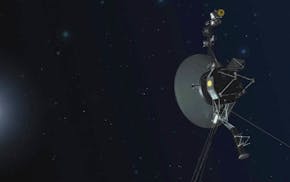More than 32,000 Minnesotans have volunteered to be organ and tissue donors under a new state program that allows people to sign up while applying online for hunting and fishing licenses.
The first-in-the-nation campaign helped advance Minnesota's status as having one of the nation's highest adult donor rates. More than 2.6 million Minnesotans — 63 percent of the adult population — are registered through LifeSource, a nonprofit organ donor agency.
The program's launch last March increased the state registry by more than 1 percent. LifeSource officials said that was significant and that it demonstrated the need for fresh approaches beyond appealing to Minnesotans to sign up when they renew driver's licenses.
"When you're registering in the driver's license station, the situational dynamics are completely different," said LifeSource spokeswoman Rebecca Ousley. "You're trying to get in and out and it's busy and maybe you are distracted. We do think there are people who miss that opportunity because" of the environment.
One-third of people who purchased hunting and fishing licenses online last year agreed to be organ donors. How many had previously signed up via driver's licenses is unclear, though, because the two state donor databases aren't compared.
The partnership with the Minnesota Department of Natural Resources made sense, Ousley said, because men are more likely to seek hunting and fishing licenses but historically have been less likely to sign up as organ donors. Fathers often see hunting and fishing as legacies to pass on to their children, and Ousley said that probably makes them more contemplative about organ donation than when they are renewing driver's licenses.
"That winds up pairing really nicely with the DNR's philosophy of hunting and fishing as a family legacy," she said.
While 95 percent of deaths can result in tissue and eye donations, only 5 percent can result in organ donations; to be usable for transplant, organs must be procured from someone who has suffered brain death, usually from a motor vehicle accident or stroke.
The need for donors remains strong, even though researchers are studying stem cells and other therapies to replace organ transplants. While 881 organ transplants occurred in Minnesota last year, more than 3,000 people in the state remained on a waiting list. And 151 people died last year while on the list.
"Those are certainly opportunities in the future," Ousley said, "but for people who are waiting today, their greatest hope is someone who is willing to say yes."

Remnants of bird flu virus found in pasteurized milk, FDA says

NASA hears from Voyager 1, the most distant spacecraft from Earth, after months of quiet

The House votes for possible TikTok ban in the US, but don't expect the app to go away anytime soon

Why you should donate clothing: It (probably) won't end up at the dump
